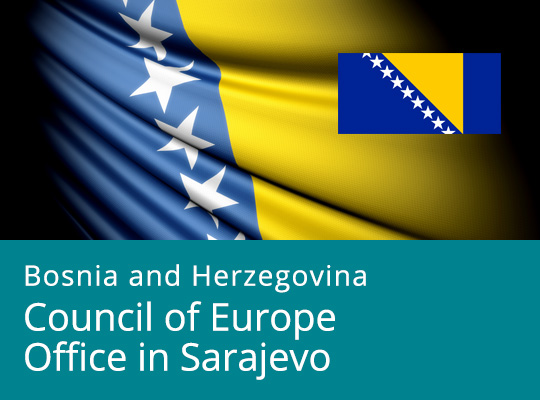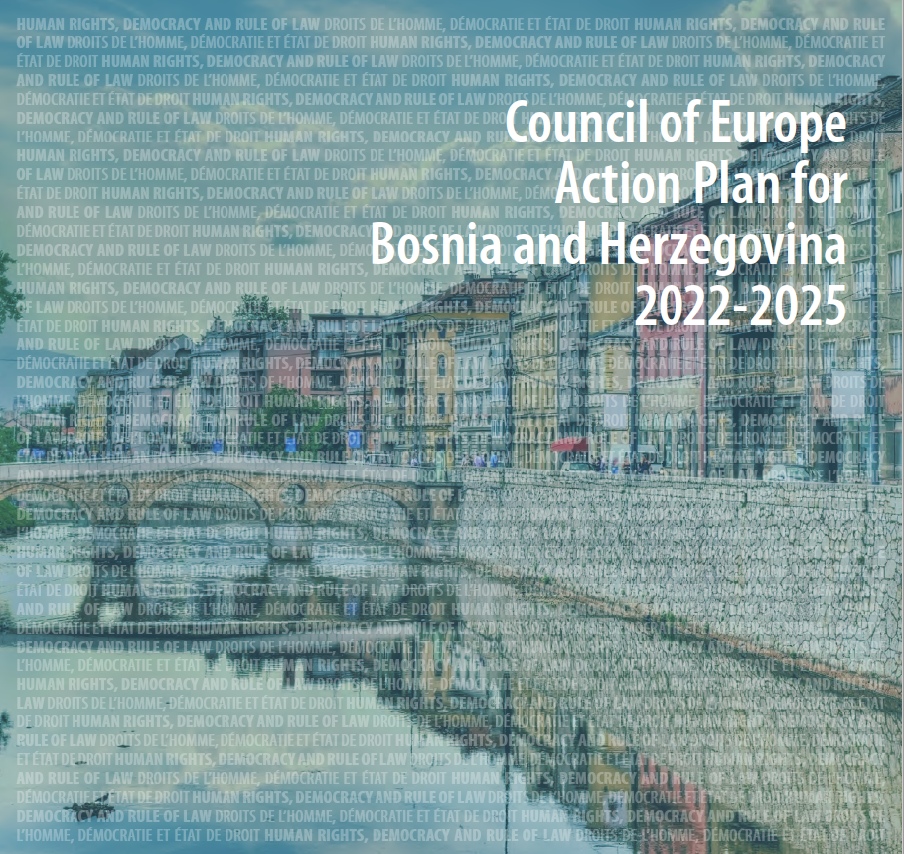Anti-trafficking actors were introduced to ways of integrating a gender perspective into Action Plans to implement the Strategy to Suppress Trafficking in Human Beings in Bosnia and Herzegovina 2020-2023. An online meeting was held on 23 October 2020 to present concrete guidelines to prevent and cope with gender-based human trafficking.
The meeting was attended by relevant authorities (representatives of the ministries of internal affairs and coordination anti-trafficking teams) and international organisations, providing support to national authorities in tackling trafficking in human beings.
The State Co-ordinator, Samir Rizvo, welcomed the participants and emphasised that „Changes in the referral mechanism and a substantial reform of the entire system have been initiated. Action Plans at state, entity and local levels are in process of being created or finalised, and results are expected to be shown to the Council of Europe the Group of Experts on Action against Trafficking in Human Beings (GRETA) during the third evaluation round of the country.“ Rizvo thanked all parties involved, as well as the Council of Europe for the relevant and timely support. „Gender dimension has not been considered and implemented much so far“, he added.
„Trafficking in human beings is a criminal offense based on gender perception“, said Boris Topic, OSCE representative.
According to Lejla Gacanica, expert-consultant who prepared and presented the guidelines, „The gender dimension in policies and strategies means much more than proper use of a formal gender sensitive language. It makes genders more visible and points out reasons why different genders are vulnerable to specific types of trafficking and exploitation“.
In its 2017 country evaluation report, the Council of Europe Group of Experts on Action against Trafficking in Human Beings stated that it was necessary to invest in gender promotion, equality, combating gender-based violence and stereotypes, and in supporting specific policies for the empowerment of women as a way of combating the root causes of trafficking.
Men and women, i.e. boys and girls are exposed to human trafficking differently and through different types of trafficking. For example, women are mostly victims of sexual exploitation, while men are in most cases victims of trafficking for the purpose of labour exploitation. Each of these categories carries certain risk factors and vulnerabilities that must be specifically considered and addressed through specific interventions.
The importance of educating labour inspectors and law enforcement officers on gender dimension of human trafficking in Bosnia and Herzegovina was underlined, because they are the first to detect and refer potential victims of trafficking to assistance and protection services.
The participants concluded that the presentation was very useful and will help them in finalisation of the action plans. They welcomed further co-operation on these issues through contacts with colleagues from other local communities, relevant state institutions and international community organisations.
The action „Preventing and combating trafficking in human beings in Bosnia and Herzegovina“ is implemented under the joint European Union/Council of Europe programme „Horizontal Facility for the Western Balkans and Turkey II“, aiming to improve anti-trafficking responses and victim protection measures, mainly through capacity building and awareness raising of key anti-trafficking actors in Bosnia and Herzegovina.




